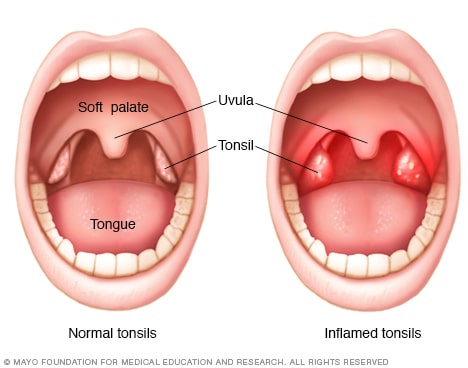What is Tonsillectomy?
Tonsillectomy is a common surgical procedure to remove the tonsils, which are two lymph nodes located at the back of the throat. These glands play a role in immune function, but when they become infected frequently or cause breathing problems, their removal can offer relief. This procedure is typically performed to treat chronic or recurring tonsil infections, sleep apnea, or other tonsil-related issues like obstructive breathing problems during sleep.
When is Tonsillectomy Necessary?
- Frequent Tonsil Infections: If a person experiences recurrent throat infections despite appropriate antibiotic treatments, tonsillectomy may be recommended.
- Sleep Apnea or Breathing Issues: Enlarged tonsils can block the airways and cause difficulty in breathing, especially during sleep.
- Tonsil Stones: These are calcified deposits that form in the crevices of the tonsils and can cause bad breath, sore throat, and infections.
Why Choose India for Tonsillectomy Surgery?
India is renowned for its affordable, world-class healthcare services, making it an ideal destination for medical tourism, especially for procedures like tonsillectomy. Patients from across the globe come to India for high-quality care at a fraction of the cost compared to many Western countries.
Key Advantages of Choosing India for Your Tonsillectomy Surgery:
- Top-Notch Surgeons: India has highly experienced ENT (Ear, Nose, and Throat) specialists, some of whom have trained internationally.
- Advanced Medical Technology: The use of cutting-edge technology in diagnostics, surgery, and recovery helps improve patient outcomes.
- Cost-Effective Treatment: Tonsillectomy in India is offered at a significantly lower price compared to the USA, UK, and other Western nations.
- Seamless Medical Experience: From consultation to post-operative care, India’s healthcare facilities provide a well-coordinated and patient-focused experience.
- Short Recovery Times: Due to modern surgical techniques and post-operative care, recovery time is generally quicker, allowing patients to return to their routine activities sooner.
Common Reasons for Tonsillectomy
Tonsillectomy is often recommended when patients experience recurrent problems with their tonsils, which can impact their health and quality of life. Some common conditions treated with tonsillectomy include:
- Recurrent Tonsil Infections (Tonsillitis):
Chronic tonsil infections that cause frequent sore throats, fever, and discomfort. Patients may have multiple episodes of tonsillitis each year despite appropriate medical treatment. - Obstructive Sleep Apnea:
Enlarged tonsils, especially in children, can obstruct the airways, causing interruptions in breathing during sleep. Tonsillectomy can improve breathing patterns and help restore normal sleep. - Chronic Bad Breath (Halitosis):
Tonsil stones or chronic tonsil infections may result in persistent bad breath. A tonsillectomy can remove the source of the odor and improve breath freshness. - Enlarged Tonsils and Difficulty Swallowing:
In some cases, enlarged tonsils can interfere with swallowing or cause a sensation of obstruction in the throat. Surgery can relieve these symptoms and restore normal swallowing. - Peritonsillar Abscess:
This is a painful condition where pus accumulates around the tonsils, often as a complication of tonsillitis. In severe cases, a tonsillectomy may be needed.
Tonsillectomy Surgery Procedures
The tonsillectomy procedure is performed under general anesthesia, ensuring that the patient is comfortable and pain-free throughout the operation. The surgery typically takes 30 to 45 minutes, and recovery takes place in a controlled environment where the medical team monitors the patient’s condition.
- Pre-Surgery Evaluation:
Before the procedure, a thorough medical evaluation is conducted to assess the patient’s health. Blood tests and imaging studies may be performed to ensure there are no underlying issues that could complicate the surgery. - Anesthesia:
General anesthesia is administered to ensure the patient is asleep and pain-free during the procedure. This is done by an anesthesiologist to ensure safety. - Tonsil Removal:
The surgeon carefully removes the tonsils using one of several techniques, including:- Cold Knife Dissection: A traditional method that uses a scalpel to remove the tonsils.
- Electrocautery: A more modern approach where heat is used to remove the tonsils and seal blood vessels to reduce bleeding.
- Laser Surgery: In some cases, lasers are used to remove the tonsils and minimize tissue damage.
- Post-Surgery Recovery:
After the surgery, patients are observed in a recovery room where they are monitored for signs of complications such as bleeding. Pain relief and hydration are provided to ensure comfort during recovery.
Benefits of Tonsillectomy
Tonsillectomy offers significant improvements to patients who suffer from chronic tonsil infections or breathing difficulties related to enlarged tonsils. The benefits of tonsillectomy surgery include:
- Reduction in Throat Infections:
Tonsillectomy reduces the frequency of throat infections and the associated pain, fever, and other symptoms, helping patients lead a healthier life. - Improved Breathing and Sleep:
For those suffering from obstructive sleep apnea caused by enlarged tonsils, the surgery can significantly improve breathing patterns, resulting in better sleep quality. - Improved Quality of Life:
By alleviating symptoms such as throat pain, difficulty swallowing, and bad breath, tonsillectomy can vastly improve a patient’s overall quality of life. - Minimized Risk of Further Complications:
Chronic infections or obstructive sleep apnea can lead to long-term health problems, including heart strain or hearing issues. Tonsillectomy helps reduce the risk of these complications.
Post-Surgery Care and Recovery
Post-operative care is essential for ensuring a smooth recovery process. Patients should follow these guidelines for optimal healing:
- Rest and Avoid Strenuous Activities:
After the surgery, it's important to rest for at least a week and avoid heavy lifting or strenuous physical activities. - Pain Management:
Pain following tonsillectomy is common, especially in the first few days. Medications such as acetaminophen or prescribed pain relievers help manage discomfort. - Hydration and Soft Foods:
Keep hydrated and eat soft, non-spicy foods for the first few days after surgery. This helps minimize irritation to the surgical site and aids in the healing process. - Avoid Hot and Acidic Foods:
Hot foods, acidic fruits, and spicy dishes should be avoided as they can irritate the throat and cause discomfort. - Monitor for Complications:
Watch for signs of complications such as excessive bleeding, fever, or persistent pain. Contact the healthcare provider immediately if any of these symptoms occur.
Cost of Tonsillectomy Surgery in India
The cost of tonsillectomy surgery in India typically ranges from INR 30,000 to INR 80,000 (approximately USD 400 to USD 1,000), making it significantly more affordable compared to Western countries, where the cost can range from USD 3,000 to USD 10,000.
Factors Affecting Cost:
- Hospital & Surgeon Fees: Higher-end hospitals and experienced surgeons may charge more.
- Type of Procedure: Advanced methods like laser or coblation may cost more.
- Geographical Location: Costs can vary based on the city.
- Post-Operative Care: Additional costs may include medications and follow-up visits.
India offers a combination of world-class care and affordable pricing, making it an attractive destination for tonsillectomy surgery.
Frequently Asked Questions (FAQs)
- What is the ideal age for tonsillectomy surgery?
Tonsillectomy is most commonly performed in children, but adults also undergo this surgery, particularly if they suffer from chronic infections or sleep apnea. - Is tonsillectomy surgery safe?
Tonsillectomy is a generally safe procedure with a low risk of complications, particularly when performed by experienced surgeons. - How long does recovery take after tonsillectomy surgery?
Recovery typically takes 7 to 14 days, although full healing of the throat may take up to 3 weeks. - Can I eat normally after the surgery?
For the first few days, stick to soft foods and liquids. Avoid solid, crunchy, or spicy foods that may irritate the throat. - Is general anesthesia required for tonsillectomy surgery?
Yes, general anesthesia is typically used to ensure that patients are completely asleep during the surgery and to avoid any pain or discomfort. - What are the risks associated with tonsillectomy surgery?
Risks may include bleeding, infection, or reactions to anesthesia, although these are rare and treatable. - How soon can I return to work or school after tonsillectomy surgery?
Most patients can return to light activities or school within 7 to 10 days after surgery, although physical activities should be avoided for about 2 weeks. - Will I experience pain after the surgery?
Some pain or discomfort is expected after the procedure, but this can be managed with pain medications. - Can tonsillectomy cure sleep apnea caused by enlarged tonsils?
Yes, if sleep apnea is caused by enlarged tonsils, the surgery can significantly improve breathing during sleep and alleviate symptoms. - What are the long-term effects of tonsillectomy surgery?
Most patients experience fewer throat infections and better overall health, particularly those with chronic tonsillitis or sleep apnea.





